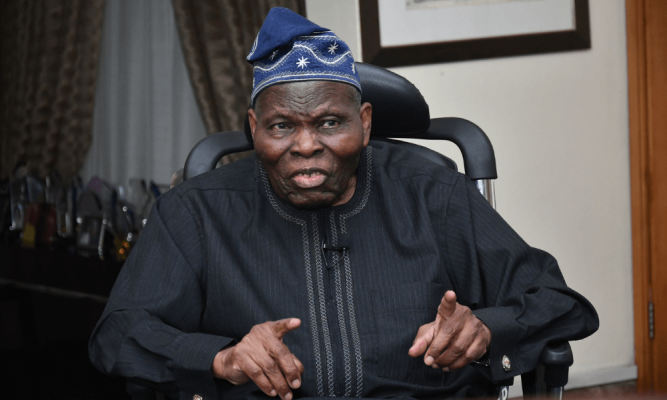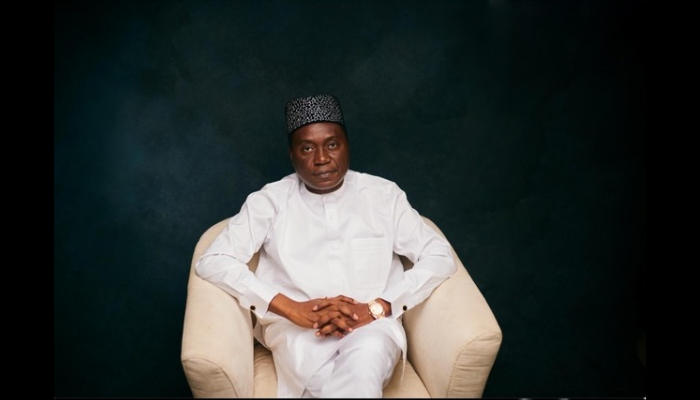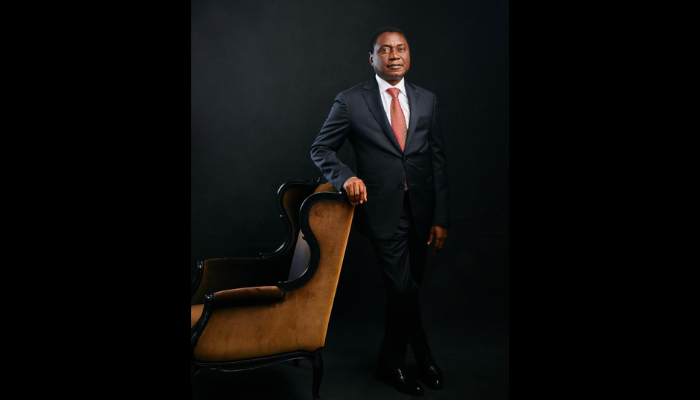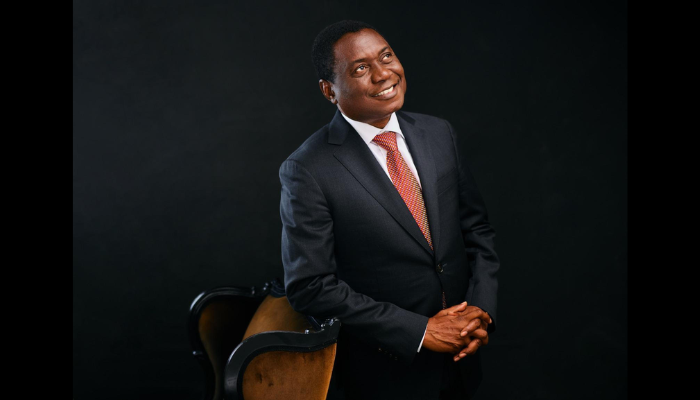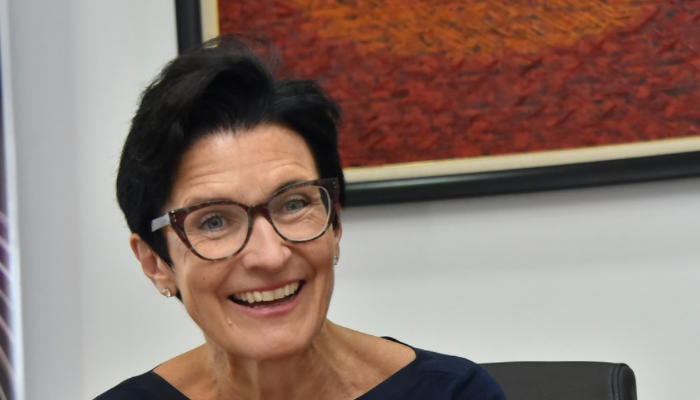Christopher Kolade is the former Nigerian High Commissioner to the United Kingdom. In this exclusive interview with Frank Aigbogun, the Publisher, BusinessDay Media, he shared his reflections on the country’s past and the pivotal role of selfless leadership in steering the nation back to a path of integrity and progress.
Looking as far back as you choose to look, what are the standout moments, both positive and negative, that have left a lasting impression on you about Nigeria?
I have been very fortunate in that whenever I have tried something to the best of my belief, on the whole, it has worked. So I can say that my experience has been positive, but when I look back, three things are missing.
The first is that I’m not sure that people now, especially the youngsters, are taking initiatives based on their capacity. I came out of university with a bachelor’s degree. Today, some youngsters have multiple degrees, and I say, What are they doing with these things? How are they impacting the situation because in our own time? We had to take initiative and sometimes even stand in opposition. That’s the first thing I’m missing.
The second thing I’m missing is that at that time, we felt that if there was something that we knew to be the truth, that’s what we should try to do; no matter what anybody else was doing, let us stand on the truth. And the truth may not be comfortable, but if it’s the truth, that’s the thing you should do.
Now, the third thing I’m missing is that those who were leading the society and the country at that time appeared to be doing so because they had an interest in the country. I remember that after moving to independence, a few of those who were politicians at the time were imprisoned because they tried to express their move towards independence. But they did it not because they had anything to gain themselves but because they thought that’s the way the country ought to go. I’m missing that now.
I get the feeling that the politicians of today think of themselves first and maybe the country later. That’s my comparison.
“So, first put the interest of the country and the people ahead of any other interest, and you will find that you can also fulfil self-interest when you’ve taken care of that interest first.”
What do you think happened? How did we then go from your time when leaders thought first of the nation and very little of themselves? How did we get to the point where politicians thought more of themselves than of the nation?
Again, it’s difficult to tell how we went because it was not a sudden transition and it was not something that you would say people did deliberately. But you see, the moment you take self-interest and put it ahead of other interests, then you are liable; you become likely to go in the wrong direction.
My philosophy is that if the country or the society is good, is healthy, and is doing well, those who will do well will find their place, but if the society is not doing well, those who want to do well will have a problem. So, first put the interest of the country and the people ahead of any other interest, and you will find that you can also fulfil self-interest when you’ve taken care of that interest first.
In my view, it’s because we allowed self-interest to begin to take priority; that’s why we found ourselves where we are.
I would like for us to reminisce a bit. Talk to us about university days, the excitement of looking forward to independence, the days of the first broadcasting house in the whole of Africa—those days when we were almost unstoppable.
When I was a young person, not many people went to university, so going to university was something special. Because it was something special, there was an expectation that if you have become part of this special group, you must deliver something.
The thought in our minds was that we have a responsibility; there is an expectation, and only if we measured up to that expectation could we be justified. Going to a university was not cheap either, and if you went on a scholarship or whatever means, somebody was paying them fees, so try to do your best to meet the expectations. That was the first thing.
The second thing was that the way we were taught was that you know if there’s a need, it is your responsibility with all this education to identify the need; to say this is what this situation needs. Your second responsibility is to say this is how this need should be met, but there’s a third responsibility. Can I meet that need?
So three things: identify the need, find the solution to the problem, but identify what you can do to contribute to the solution.
On Independence Day, what were you doing? What did you look forward to?
On Independence Day, you will be surprised. I was a new controller of the Western Region of the NBC. I became Controller of the NBC in the Western Region on the 13th of September, just before Independence Day. There was excitement that we were going into a new status, but here was a new controller, a new leader of young people going into independence, and we felt, Look, we can see the beginning, but we cannot tell how far this will go, and therefore there was excitement; there was a feeling that you had something to give and you must give it.
Read also: Singapore’s rigorous leadership selection process holds lessons for Nigeria
Leadership is something that you have worked on for a very long time and ended up at the Lagos Business School and the Pan Atlantic University to continue to work on leadership. What for you are key elements of leadership?
Leadership is something that we have to think about if we’re going to understand it. Why does anyone become a leader? It is because there are people to be led. If there were no people to be led, there would be no leader. A leader should not call himself a ruler, a governor, or anything like that.
You’re a leader because if you’re leading people, then it means that there is a group of people attempting to go together and you are in front. You are not a leader unless those people are behind you.
The responsibility of the leader is huge in that first he must know what the objective is and be able to convince other people that that is the right objective. Second, he must show leadership capacity that makes them believe that he can lead them. Thirdly, he must involve them so that if they have their views about how they’re going, he’s not ignoring those views.
I can tell you one story that illustrated that for me when I was running a company. Our company was producing consumer goods, and we had distributors all around the country who were the agents too. We had a sales manager in Aba. It was a good trading place, but most people wanted to receive the goods on credit, sell them, and then pay. If you’re running a commercial company, that’s not exactly what you want to see happen, but if that is the culture of the people, you’ve got to think about it.
So we on the board had a meeting and said, “Look, selling these goods on credit is not good commercial sense. So any distributor that wants goods should pay ahead of time and take the goods away. Our sales manager in Aba, knowing that the board had taken this decision, got in touch with us members of the board and said, “If you choose to do that, you will not do a lot of business because the culture here is that people take things on credit. So what you have to do is to manage the culture.”
Now, in pure management terms, we had taken a policy decision as a board. Therefore, anybody working for us should just go with the policy, but when he sent this message, we looked at it again. We said, “What is the real objective? We want to do good business, and if the way to do good business requires that we manipulate policy a little, let’s see if it works, but the thing here was, do we trust this sales manager to do the right thing? Do we trust everybody involved, including distributors, to pay when they should? If you can manage it so that you establish the truth in those relationships, it will work.
But when this message came to us as a board, it was a learning point. We now had to learn that if you could not do what the market wanted you to do, you might not be able to succeed in business. It was a learning point, so we had to be learning leaders.
Just to tell you that story, a leader is not an authority that cannot be educated. A leader must be ready to take everything and go to the objective that they have in mind.
Lately, someone shared with me a very rigorous process that the country Singapore goes through for leadership selection, and I wanted to just ask you, how vital and how critical are there examples?
I know what you’re talking about exactly. They spent four years looking at this individual for this leadership. Because of all the things I’ve said, the person of the leader and the temperament of the leader are key to performance. If the leader is not the right kind of person, if the leader comes and thinks “I’m ruling,” “I’m governing,” or does not have a good understanding of people, it can fail.
Therefore, selecting somebody who’s going to be the leader becomes very critical because you have to test all these things, and the best way to test is not to ask questions but to see what this person has done before, and if the person has shown the characteristics of somebody that can be led into another role, because one of the things we forget is that when you take somebody to be a leader, you are leading them to a new, different responsibility.
Now, the best way to do that is to prepare them for it to make sure that they are ready for it. How can you be sure that they’re ready for it if you don’t make an effort to get them ready? This is what we do every day in business. When you want to appoint a senior manager, you send them to training, you make sure you exchange with them information that improves the level they used to be, and we do all of that until we come to national leadership.
When we come to national leadership, you don’t do any training; you don’t even require evidence of good performance at lower levels. The Singapore story tells you that these people said they must see evidence that this person has done this, has done this at this level, at that level, and therefore is capable of going to a new level, and if you don’t do that, the point is that you should not be surprised if leadership fails.
What else, apart from what you have said now, do you think can be attributable to leadership failure across Africa?
Leadership failure anywhere is sure to happen if the conditions for good performance have not been put down. To begin with, we must remember that leadership is a responsibility. It is not just title, status, or paraphernalia. Leadership is something you have to do; it is a responsibility.
If there’s a responsibility, you have to know that responsibility. And how do you know a responsibility unless you have learned it? We are not leaders by nature, but we develop to be leaders. How do you develop?
If you’re going to take leadership, then you have to learn what is involved. Learning is important, and learning means you have to be humble enough to know that there is something that you need to learn and know, and sometimes you’re going to have to learn it from somebody, maybe someone who is even younger than you.
Many of us sometimes look at leadership as something you acquire by patronage. It is not patronage but performance. If you have not shown that you can do something, you have no right to be made a leader.
How did all of this and your perception of who a good leader is shape the work you did at the Nigerian High Commission in the United Kingdom? A lot has been said about what you did in terms of revolutionising the place.
Talking about the Nigeria High Commission, first of all, the appointment to the High Commissioner post was based on the fact that I had other experience before, and my acceptance of that position was based on the fact that I knew I had done some things before. I had done national broadcasting and ran a commercial company. So I knew that there were things that I had already done that I could gain from doing this.
When I became the High Commissioner and discovered that there were some misunderstandings about what a person in that position should do, I tried to do what I could.
I’ll tell you a funny story. One day, my principal accounting officer, this was after I became High Commissioner, came to me and said that he wanted to tell me something, and I said, What is it? ” He said, “Well, I want to tell you that high commissioners don’t behave the way you do. I said, “That is very interesting; how exactly, illustrate for me.” And he said, “Look, on working days, you are here before we get here; you’re here throughout the time we’re here when we’re going away; you are still here and you are working. No, High Commissioners don’t do that. They wait until we are all here, then they come in.” And so I said two things: “Please, forgive me; I have never been a high commissioner before. This is my first experience, and I can only go by what I already know. But what I already know is that in my previous positions, whatever I expected my followers to do, I must do to an exemplary level. If I expect them to be punctual to the office, I must come to the office on time. If I expect them to give time to what they’re doing and look at standards, I must look at mine, and that’s what I’ve been trying to do.” So you see, uh, so far it seems to be working because we seem to be succeeding.”
My point is that a leader should never require his followers or her followers to do something that that leader is not prepared to not just do but to do by example because leadership is also an example. The people following you have a right to expect that if there’s something to be done, you will lead the way and show the example.
Read also: IMF approves four-year $3.4bn extended credit facility for Ethiopia
Between then and now, people have made comparisons in terms of Nigeria’s diplomatic standing and our approach to diplomacy. What do you think has changed?
Now, let me say right away that I do not indulge in comparing what people are doing now with what I did. When I went to be High Commissioner, I met a particular situation and I met particular people. There were needs that Nigeria had at that time.
For instance, those were the years of ‘419’, when Nigeria’s reputation was in the doldrums. That was a situation we had to deal with. What we did then was our best effort to address the situation we found.
Now, what are the situations they are finding today? I don’t know. Therefore, it is sometimes unwise for me to say the way they are doing now because I don’t know what they’re encountering now. The important thing I can say is that whatever the needs of your situation are when you are in charge, make sure that you do your best to meet those needs and to lead in such a manner that the problems arising from those needs are addressed properly.
Now, if that is what is happening now, then I can’t ask more than that, but as I say, I don’t compare.
There was a time when people said that Nigeria used its diplomatic muscle to achieve significant economic goals. It appears today that you look around and you’re asking yourself, Why do we choose ambassadors in certain places? Why do we have high commissioners or embassies in the same certain place? What is driving this? Is there a major change in terms of what our overarching goals are as a nation?
There was a time when many African countries were not independent, and so one by one they became independent. At that time the habit was that if a country was going to be independent, they came to Nigeria to say, “Look, we want to set up our judiciary; we want to set up our civil service. We have seen the way you’re doing things; please, can you help us?”
We had Nigerians who went, we had a Nigerian lawyer who went to be Chief Justice in Zimbabwe, and so forth. That was the situation then, and that was the height of respect that Nigeria, by performance, had attained.
There was a time when the reputation was that our civil service was one of the best in the Commonwealth, and these things are not rumours; they are acts. What has happened?
What has happened is what I’ve been trying to say: that we have allowed self-interest to become so dominant that we’re no longer looking at the interest of the nation and the capacity of the nation. As we talk today, this nation still has people that can do great things.
Let me remind you that there was a time that we had a Nigerian Secretary General of the Commonwealth, and he was in that position for 10 years. It was supposed to be 5 years, but they renewed it. In fact, during his tenure, Nigeria’s behaviour was so bad that they suspended us, but all of these things added up.
The fact that Nigeria could behave in such a manner that it earned suspension was one of the declining events that led us to where we are. It is not just our diplomatic life, but the fact that the respect we’ve had as a nation has declined. Now, if people want somebody to come and help them, do they come to ask us? No. It has changed, and we cannot blame anybody. We can’t; we can’t attribute it to anybody else but to ourselves.
So does it mean that all that has happened is that we just lost it?
You see, it is a natural process. When you are concentrating on performing well, your personality becomes a secondary consideration. It is that performance you are asking people to judge and to make their minds up. Is this performance satisfactory? Is it helping you or not?
Now if that’s the way you are and particularly if a succession of Nigerians go into that position and produce the same level of performance, then it becomes a respect for Nigeria; this is how we can rely on Nigerians to behave.
But the moment that we lose that focus, instead of concentrating on the quality of what we are producing, we are now saying, “This is my right, and this is what I must do,” we lose it because, by then, we are no longer focusing on the performance. That’s what has happened.
If we’re going to tell the truth to ourselves, something we find very difficult, we have to confess that the way we used to behave is different from the way we behave now as a nation.
Now addressing the youths of the country, even with my children, I have difficulty when I tell them about the Nigeria that I knew, and that is much later than your own time. How do we assure the youths of today that there was once a Nigeria of enviable status?
There’s a question that perhaps we ought to be asking ourselves, and we’re not asking ourselves. In today’s Nigeria, can we find anybody, particularly any young person, who, despite what is happening, is still doing the right thing? Can we find a young person who says, although this is the way society is going, I am not going to go that way? This is what I think is right, and I’m going to do what is right. Yes, there are such people.
Now, question: are those the people we talk about today? Do they have any publicity? If you ask a schoolchild today, who are the people doing good things in this country? The names you will hear are names that will disgust you, and yet some young people are, without waiting for the government, without waiting for sponsors, saying this is the thing to do and I am going to do it.
Those are the people we need to be building up, and to say this thing you’re doing, “Let us support you; let us see what we can do to bring it into prominence. I have a personal philosophy, which you don’t mind if I share now. It is difficult for you to meet a normal human being who wants to be identified as a bad person. Most people you meet want you to have a good opinion of them, and the best way for other people to have a good point of view is to do well.
So our natural inclination is to do well so that we can earn the good opinion of other people, but if we do well and we don’t earn that good opinion, then we say there’s no point doing well. That’s what has happened to us. The people who are publicised in this country today are the ones who are doing whatever it takes to succeed in their way, whereas the people who are doing well and who are trying to do the best thing, you don’t hear about them.
The ones who are doing good work have to go to the streets to try to earn the right pay; the doctors, the teachers, who are trying to do good work have to go on strike to get paid properly, and yet do you know what National Assembly people are carrying home every day? Look, these things are facts; they are not imaginations.
Instead of putting our investment where our fortunes lie, we prefer to put our investment where it’s expedient. Don’t be surprised that we fail.
Let me begin to bring this to a close with two questions. First, I want to talk about education and what you think we can do because I think in all of this, education is important. The other question will be to ask you a message you have for our youths.
Fortunately, for me, I have been active in education. I started work as a secondary school teacher and went on to teach at the university level.
I know that when you face students and you show them the right thing to do, students will agree with you that, yes, what you are saying is right; this is the right thing to do. Then they will say, but look at what is happening. If you do this in this place, you will not succeed.
So that’s the first thing. Education—there is nothing wrong with education if only we get the right people to do it. When you graduate, the university certificate that you are given actually says that this man has satisfied the authorities of education in both character and learning. Does anybody want to know your character? If they’re not looking at your character, why do you go to that length to get it?
Let’s stop blaming education. What we should do is say if you educate somebody and say you are now worthy in character and learning, let that person have the joy of knowing that both character and learning are effective outside.
My final question would be, What message do you have to our leaders and the young?
At this stage of my life, the main two things that I want to emphasise are: first, I believe that every individual can contribute to doing something. It may not be very huge, not very impressive, but you have been given the capacity to do something.
If anybody, especially the young people of today, cannot point to something they’re doing to make their situation better, they’re failing. Look at yourself. What can you do? Do it. It may not earn the rewards that you’re looking for, but do it all the same; that’s number one.
Number two is about leadership. I believe that Nigeria has had good leadership in the past. We have had Nigerians who led well internationally. We’ve had the DG of the World Trade Organisation, the Executive Secretary of the Commonwealth, the President of the International Court of Justice, etc. These were Nigerians.
If they could do these things away from here, it shows that they can do them here. It also shows that there must be other Nigerians who can do what they are doing, but the situation here seems to be somewhat unfriendly to people who just want to do well because they’re capable of doing well.
They do well; what do they get for it? But if the people we appoint to leadership will only do three things: One, what are the real needs of the country that they want to help us address? The leadership is not about them but about the country. What are our real needs?
Two, are they ready? Have they brought themselves up to the point where they can perform to meet those needs?
Three, when they get into office, it is not by building a mansion to live in that you show that you’re a leader, but rather by what you do for the nation. That is what shows leadership. Let leaders concentrate on leading people to work for the nation rather than for themselves.

